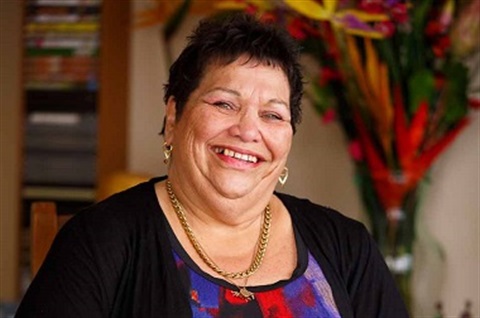What home means to Aunty Jacko
Published on 03 July 2023

Judy Jackson – better known as Aunty Jacko – has been a beacon of support and strength in Melbourne’s inner south for more than two decades. In fact, she is often described as the “glue” that binds the Aboriginal community in the City of Port Phillip.
A proud Gunggari woman and Elder, Aunty Jacko’s mob is from southwest Queensland, but she has lived in Melbourne since moving down in 1967 as a 17-year-old.
Since then, Aunty Jacko has largely been based in St Kilda, and from the early 2000s has volunteered tirelessly to support the St Kilda “parkies” to find a safe place to sleep and warm meal to eat. As a volunteer with Inner South Community Health (ISCH), she was instrumental in initiating the Wominjeka community barbecue for homeless people and fortnightly lunches at ISCH’s Our Rainbow Place, where her corned beef and pea and ham soup were always readily consumed.
She has also played a significant role in addressing many health and wellbeing concerns facing local Aboriginal community members. “I do it all because of my passion for the homeless,” she says.
It is all this work that led to Aunty Jacko becoming such a respected Elder in the community.
“It’s not a given [to become an Elder]. It’s what you do that makes you become a prominent Elder who people come to for help. [People in my community] know they can come to me and ask, ‘Where do I go to for help?’.
“Trust and respect coming both ways are the two most important things if you’re volunteering in the community,” says Aunty Jacko.
As an Elder, she says it’s her role to look after and support community members, while also helping them to look after and support themselves.
This unwavering commitment to her community also saw Aunty Jacko inducted into the Victorian Aboriginal Honour Roll in 2016.
While Aunty Jacko is now wholly embraced by her Melbourne community, she understands the deep connection many Aboriginal people have to the country they come from.
“I go back to Queensland every now and then. Like we say, it’s lovely to go back home and put your feet in the sand of where you were born,” says Aunty Jacko, also joking that she doesn’t go barefoot in the sand as much anymore, as since becoming a “city slicker”, she no longer has a hard foot.
“I used to walk around everywhere without shoes as a child,” she says with a laugh.
Through all her years supporting St Kilda’s homeless communities, Aunty Jacko knows the importance of home, and is passionate herself about continuing to live at home for as long as possible.
“My grandmother lived to 103, and she stayed at home right up until she died,” says Aunty Jacko. “She would be walking around like a little fast walker with her walking stick, she’d speed right past you!
“I’m living by myself, and I try to be as independent as I can. There are lots of things I find difficult, but I try my best. [For example], I do little exercises to keep going. Try and do the best you can for yourself.”
The key to being able to live independently in your later years is having good support. This can come from family, from home care providers and from the wider community. As Aunty Jacko notes, all elderly people are highly regarded in the community, and treated with kindness and compassion by everybody.
“[Elderly people] are all respected, whether you know them or not. The young ones come up and say, ‘Hi Aunt’, even if they don’t know me,” says Aunty Jacko, reiterating that unbounded respect is at the core of her community.
“Respect and trust have to go both ways,” she says.
To find out more about the NAIDOC Week theme for 2023, For Our Elders, please head to the official NAIDOC Week website.